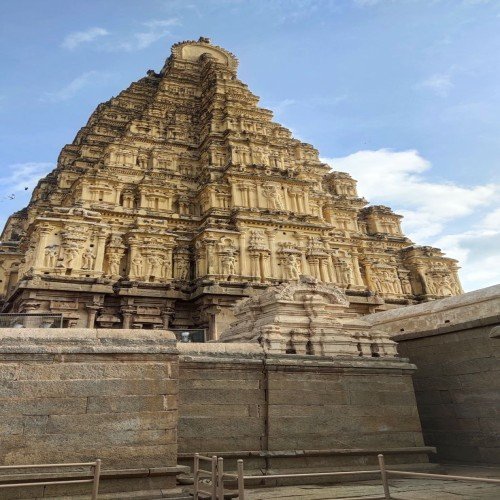
Discovering Patnitop: A Hidden Gem in Jammu and Kashmir
Posted at 13/Nov/24

Exploring Katra: The Gateway to Vaishno Devi
Posted at 13/Nov/24

Vaishno Devi Blog: A Spiritual Journey to the Divine Abode
Posted at 13/Nov/24

Discovering Hampi: A Journey Through the Ancient Ruins of Vijayanagara
Posted at 13/Nov/24
Written by Sartaj Ansari
Posted at 14/Oct/23

Introduction
Varanasi, also known as Kashi, Banaras, or Benaras, is a city that transcends time. Nestled on the banks of the holy river Ganges in the northern state of Uttar Pradesh, India, Varanasi is a place that holds immense significance in the hearts of millions of people around the world. It is a city that effortlessly blends tradition, spirituality, and the eternal cycle of life and death. In this blog, we will explore the mesmerizing city of Varanasi, with its rich history, spiritual importance, and unique culture.
The Spiritual Epicenter of India
Varanasi is revered as one of the oldest continuously inhabited cities in the world. Its spiritual legacy is profound, and it has been a center for religious and philosophical activities for centuries. The city is a significant pilgrimage site for Hindus, as it is believed that a dip in the sacred Ganges river here can wash away one's sins and lead to spiritual enlightenment.
Ghats: The Soul of Varanasi
The city is famous for its "ghats," the steps leading down to the Ganges river. There are more than 80 ghats in Varanasi, each with its unique history and significance. The Dashashwamedh Ghat, where the Ganga Aarti takes place every evening, is perhaps the most famous. It's a breathtaking ritual where priests, in a synchronized manner, offer prayers to the river, accompanied by the mesmerizing sound of bells and the fragrance of incense.
The ghats are not just places for rituals; they are centers of social and cultural activities. People come here to take a holy dip, cremate their deceased loved ones, practice yoga, and engage in meditation. The lively buzz of life and spirituality on the ghats is a sight to behold.
History and Culture
Varanasi has been a beacon of art, culture, and learning for centuries. It is the birthplace of numerous classical musicians, artists, and scholars. The city has been a hub for Indian classical music and dance, with a rich tradition of musical gharanas (schools) and cultural festivals.
The Benaras Hindu University (BHU), established in 1916, is a prestigious institution and one of India's leading centers of learning. BHU has played a pivotal role in preserving and promoting the city's rich cultural heritage.
Silk and Handicrafts
Varanasi is renowned for its fine silk and brocade fabrics. The famous Banarasi sarees are sought after by women all over India and beyond. These sarees are characterized by their intricate designs and fine craftsmanship, making them a symbol of tradition and elegance.
The city is also known for its exquisite metalwork, wooden toys, and other handicrafts. Exploring the narrow lanes of Varanasi, you will come across countless shops selling these authentic and beautiful creations.
Cuisine
Varanasi offers a delectable range of vegetarian dishes. From piping hot jalebis and kachoris on the streets to rich thandai (a special drink made during the festival of Holi) and the famous Benarasi paan (betel leaf), the city's culinary offerings are a treat for your taste buds. A must-try is the local specialty, "Banarasi Dum Aloo," a mouthwatering potato dish.
The Essence of Life and Death
Varanasi is also known as the "City of Death." The belief is that dying in Varanasi and being cremated on its ghats allows one to attain moksha, liberation from the cycle of birth and death. The Manikarnika Ghat and Harishchandra Ghat are two of the most famous cremation grounds where these rituals take place.
In Conclusion
Varanasi is a city that encapsulates the essence of India's spirituality and tradition. Its intricate tapestry of history, culture, and spirituality is a source of endless fascination. A visit to Varanasi is a journey through time, where you can witness the coexistence of ancient rituals and modern life, all along the timeless banks of the holy river Ganges.
Copyright © Disha Holidays 2024-2025 | All Right Reserved